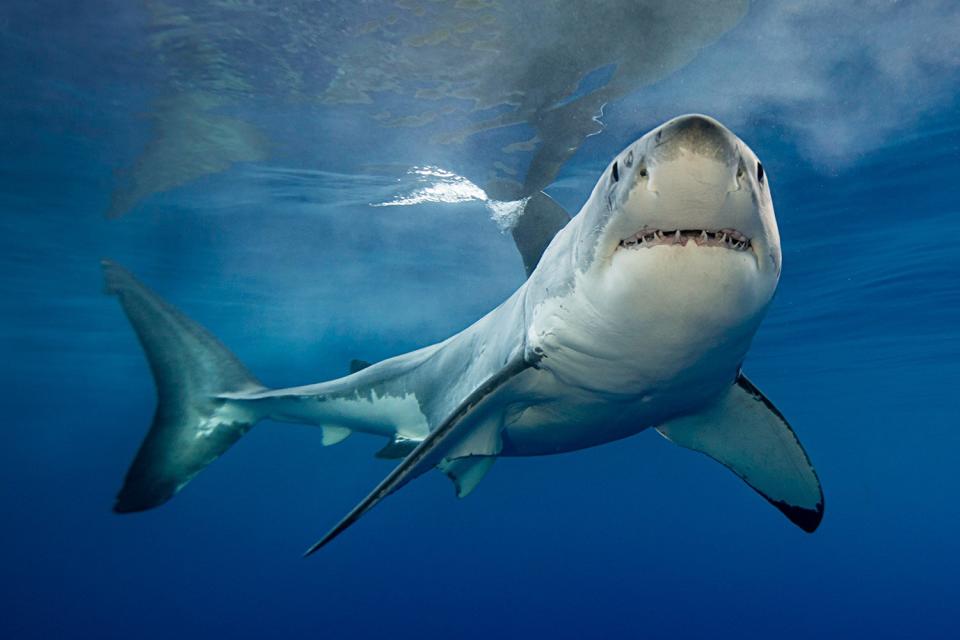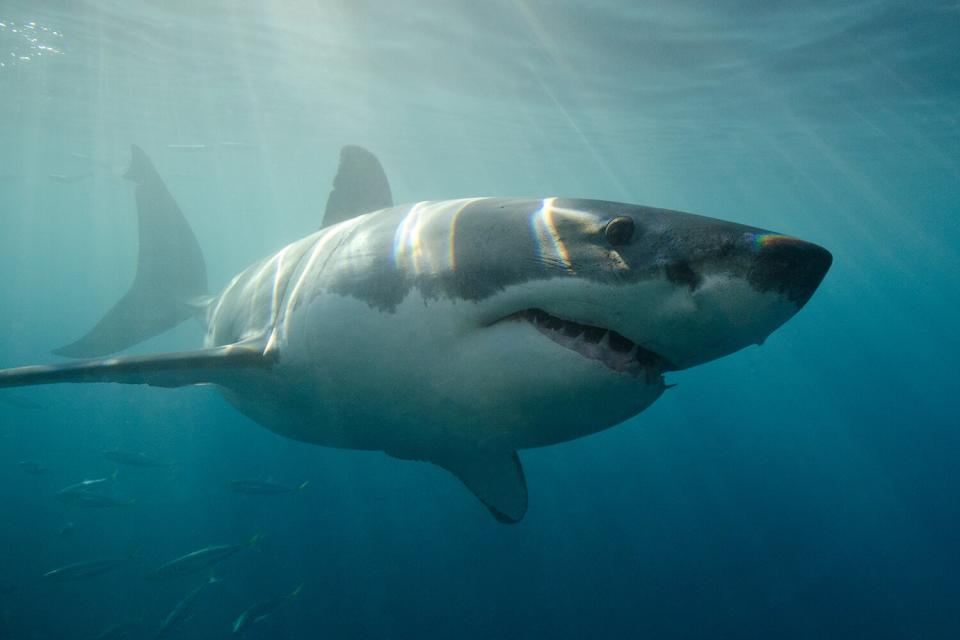Shark Attacks Increased in 2021, and Researchers Say the Pandemic Is Likely the Cause

Getty
After a brief decline, shark attacks around the world increased in 2021, officials from the Florida Museum of Natural History announced this week.
Researchers at Florida Museum's International Shark Attack File (ISAF) recorded 73 unprovoked shark bites and 11 total fatalities, nine of which were unprovoked, in 2021. There were also 39 provoked shark bites during the same time span.
The attacks represent a substantial boost from the 52 recorded in 2020, which was the lowest amount recorded in more than a decade. But ISAF representatives say beach closures during the pandemic offer a likely explanation for the jump.
"Shark bites dropped drastically in 2020 due to the pandemic," ISAF Manager Tyler Bowling said in a press release. "This past year was much more typical, with average bite numbers from an assortment of species and fatalities from white sharks, bull sharks and tiger sharks."
The 73 unprovoked attacks recorded in 2021 are now more in line with the five-year global average of 72, the organization said.
Most shark attacks in the U.S. occurred in Florida, which accounted for 28 non-fatal bites. The state was followed by Hawaii, which recorded six attacks, and California with three.
While shark attacks are returning to their historical average, shark-related fatalities are decreasing, the ISAF said. This is likely due to improved safety guidelines at beaches and fewer sharks along the coast.

Getty
"The overall decline in mortalities from shark bites is likely due to a combination of improved beach safety protocols around the world and a diminishment in the number of sharks of various species in coastal waters," Gavin Naylor, director of the Florida Museum's shark research program, said in a statement.
"The spike in 2020 and 2021 is almost certainly because of the expanding numbers of white sharks, which have been increasing in various localities likely in response to a boom in the seal populations they feed on," he added.
The organization also cited advanced medical treatment and public awareness for the reduction in fatalities.
RELATED: Man Hospitalized After Apparent Shark Bite Near Disney's Vero Beach Resort
Larry Cahoon, professor of biology and marine biology at the University of North Carolina, previously told PEOPLE about steps beach-goers can take if they encounter a shark.
"People say to swim slowly back to shore, but what is that going to do? Swim to shore as fast as you can. A shark that means to eat you will keep coming," Cahoon told PEOPLE. "You need to call for help. People who survive all but the least damaging shark attacks got immediate help from others."
RELATED VIDEO: Tourists Spot Shockingly Large Shark Circling The Atlantic Waters Near Boat
Cahoon also advises against any attempts to punch the shark in the nose.
"A 10-foot bull shark will weigh close to 500 pounds and is essentially all muscle. What chance would anyone have?" he said.
"You won't be thinking rationally even if you have the opportunity to punch it," Cahoon added, "so just focus on getting back to land."

 Yahoo Finance
Yahoo Finance 